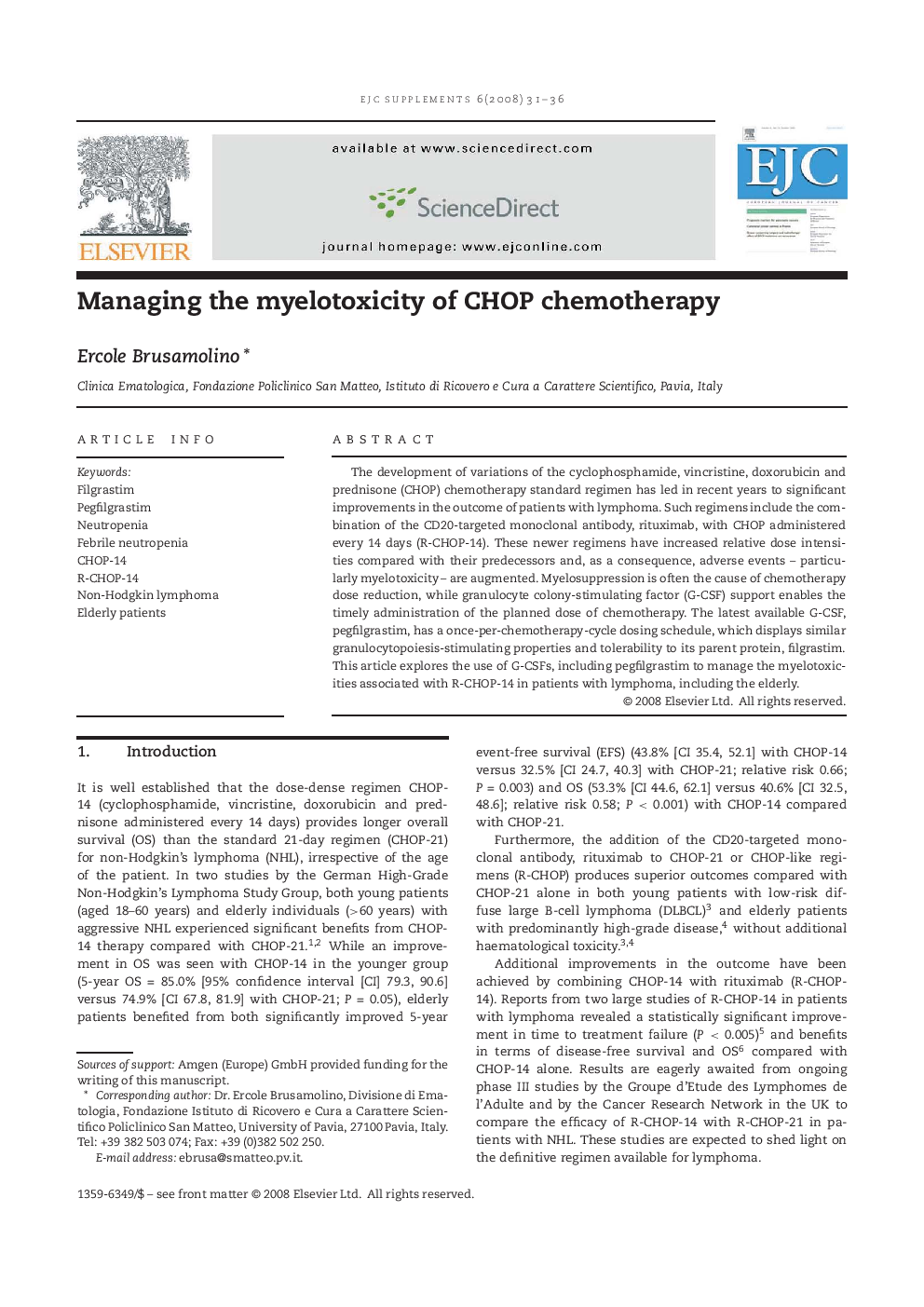| Article ID | Journal | Published Year | Pages | File Type |
|---|---|---|---|---|
| 2129001 | European Journal of Cancer Supplements | 2008 | 6 Pages |
The development of variations of the cyclophosphamide, vincristine, doxorubicin and prednisone (CHOP) chemotherapy standard regimen has led in recent years to significant improvements in the outcome of patients with lymphoma. Such regimens include the combination of the CD20-targeted monoclonal antibody, rituximab, with CHOP administered every 14 days (R-CHOP-14). These newer regimens have increased relative dose intensities compared with their predecessors and, as a consequence, adverse events – particularlymyelotoxicity – are augmented. Myelosuppression is often the cause of chemotherapy dose reduction, while granulocyte colony-stimulating factor (G-CSF) support enables the timely administration of the planned dose of chemotherapy. The latest available G-CSF, pegfilgrastim, has a once-per-chemotherapy-cycle dosing schedule, which displays similar granulocytopoiesis-stimulating properties and tolerability to its parent protein, filgrastim. This article explores the use of G-CSFs, including pegfilgrastim to manage the myelotoxicities associated with R-CHOP-14 in patients with lymphoma, including the elderly.
